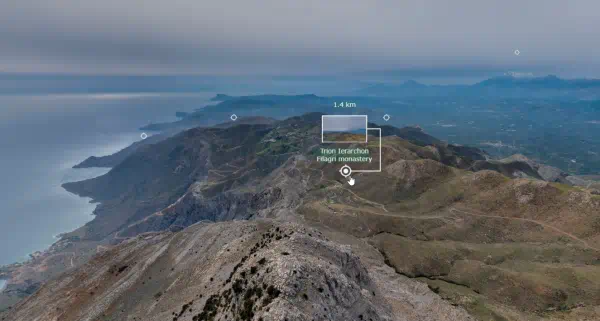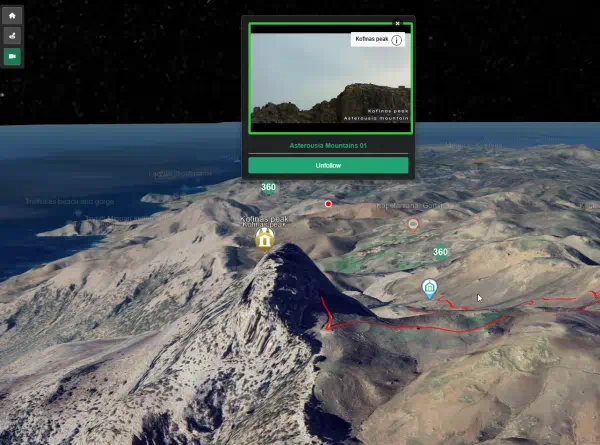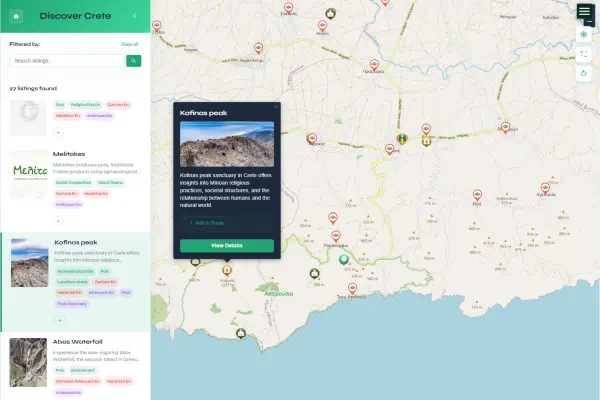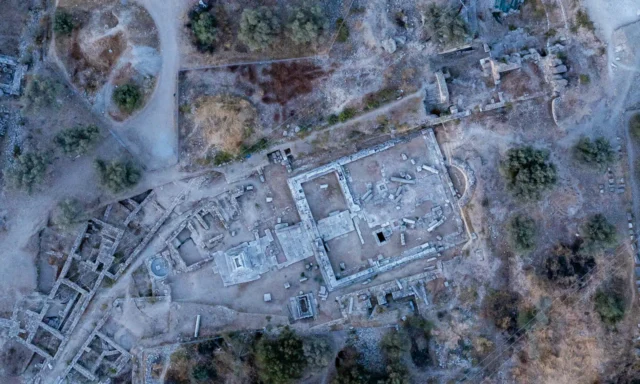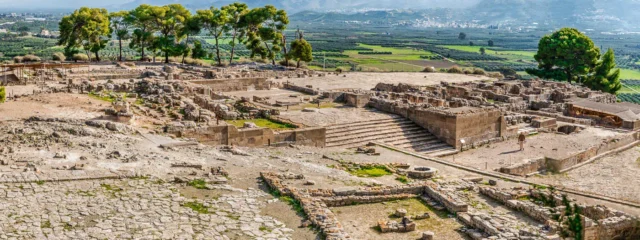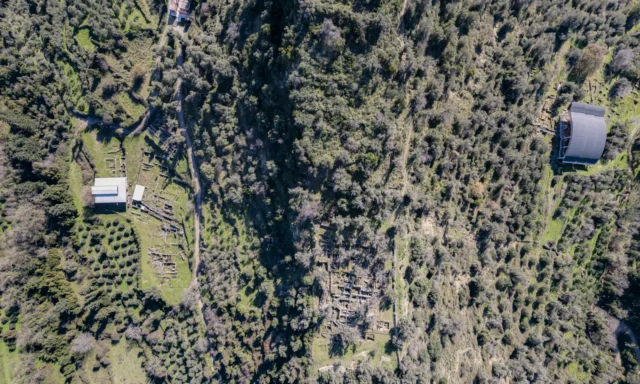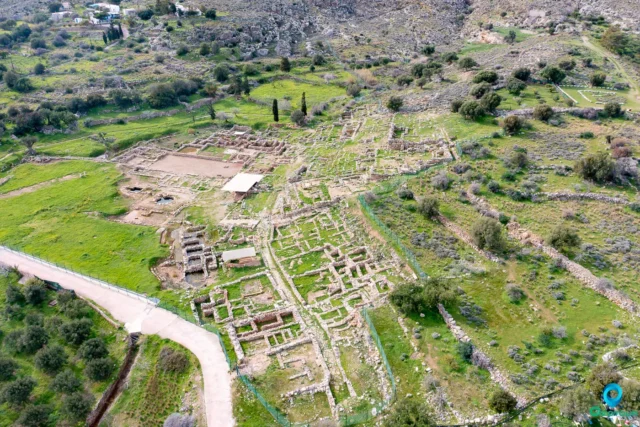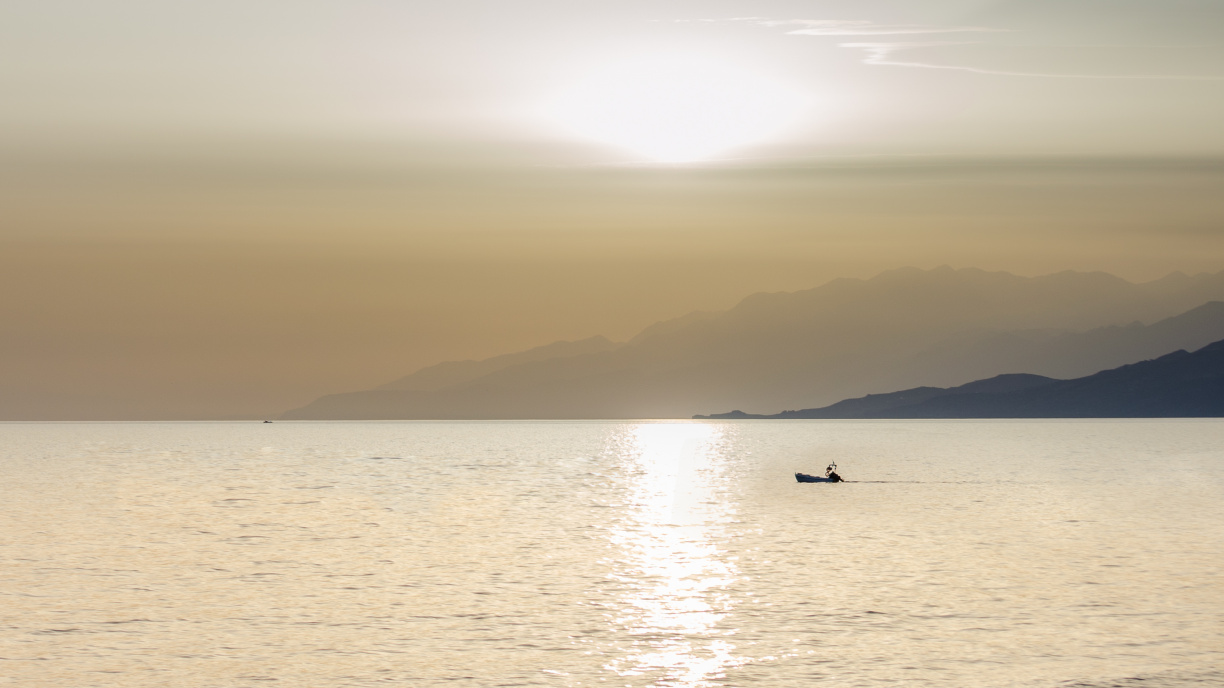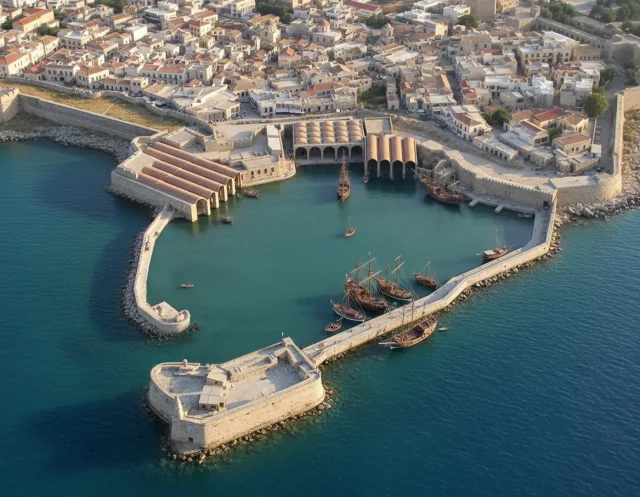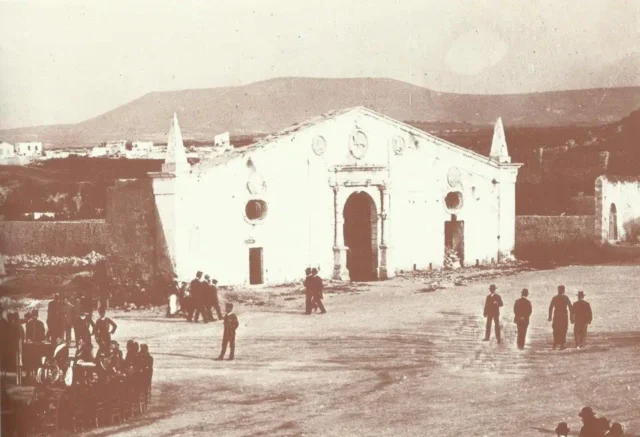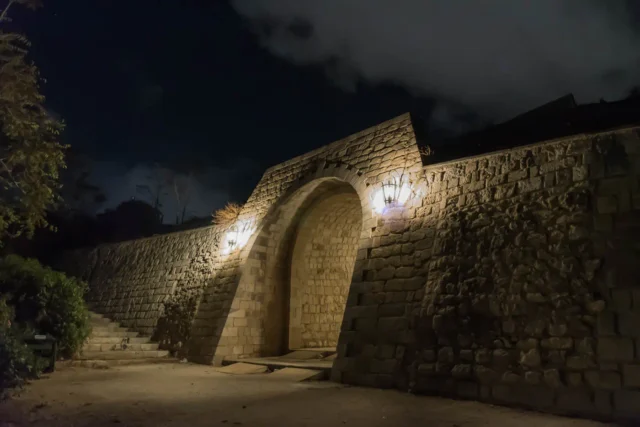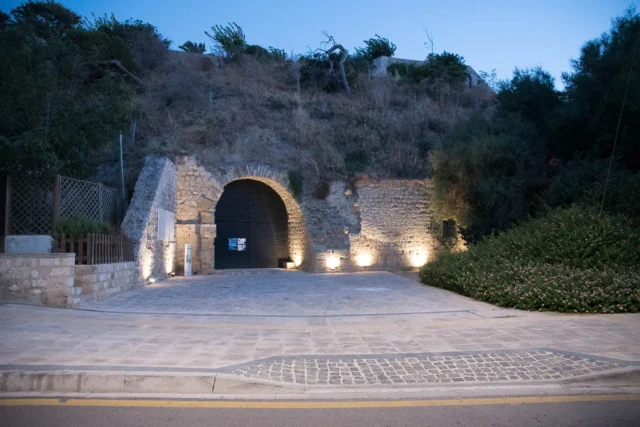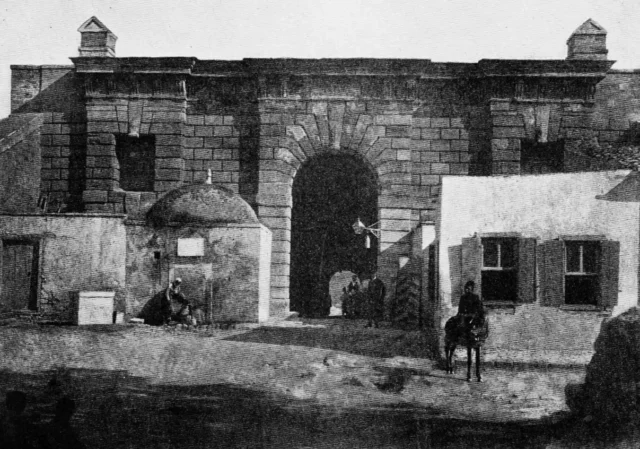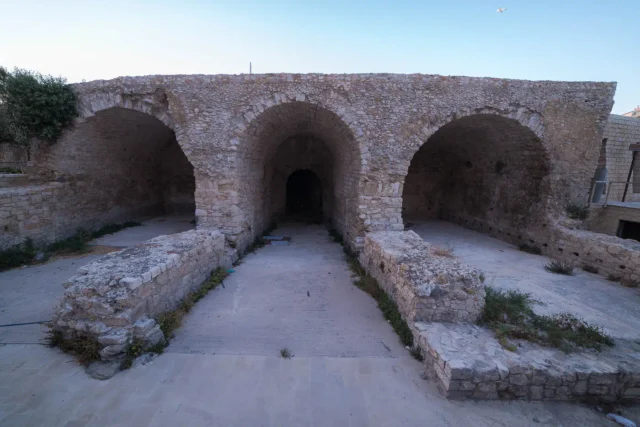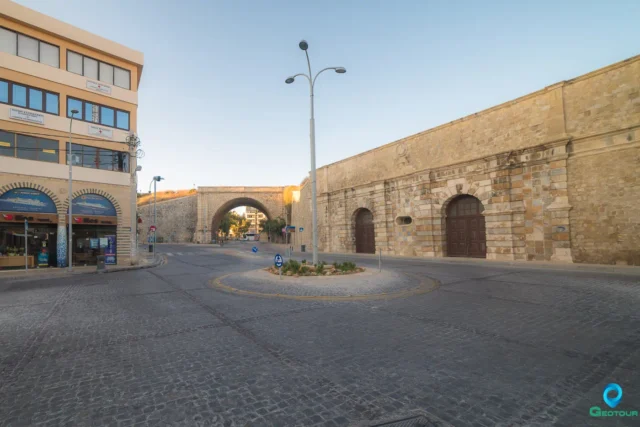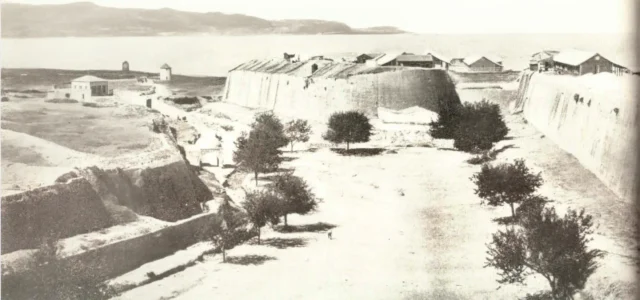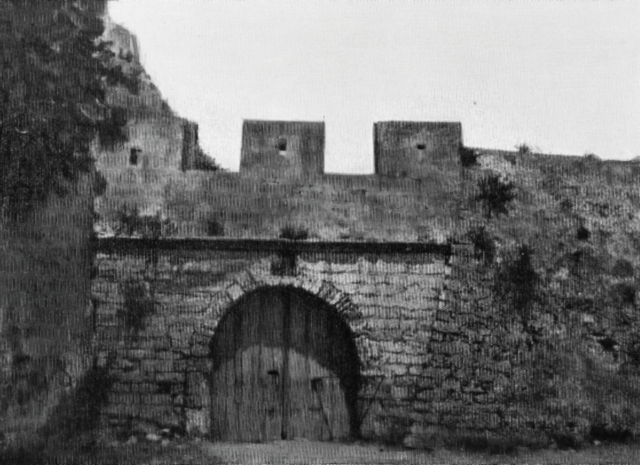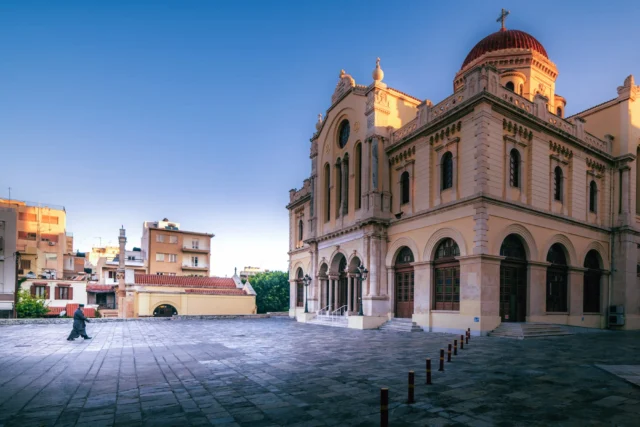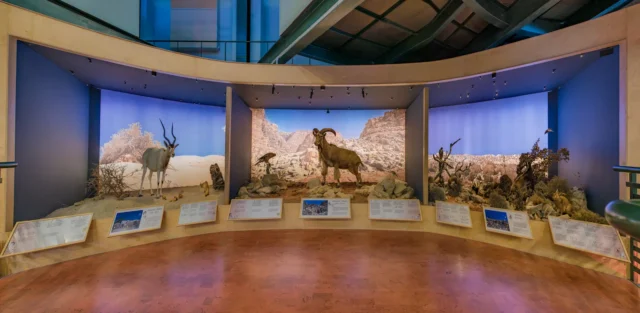13
listings found
Categories
Active filters:
The Venetian Harbor of Heraklion
The port's history begins in the Minoan era (Poros-Katsambas) and was founded as Rabdh el Khandaq by Arabs in 824 CE as a pirate base. Following Byzantine rule, Venetians developed it as Candia, their realm's capital. They constructed the massive Rocca a Mare (Koules Fortress, 1523-1540), a two-story fort with prisons and cannon ramparts, and the extensive Venetian Shipyards (Neoria) for galley repair. Ottomans added the Little Koules, later demolished in 1936 along with the Gate of the Mole and most Neoria during 20th-century modernization.
Agios Georgios (St. George) Gate, Lazaretto
The Agios Georgios Gate, also known as the Lazaretto Gate or Maroula Gate, is a reminder of the size and strategic importance of Heraklion’s Venetian fortifications. Although it was demolished […]
Bethlehem Bastion and Gate
The Bethlehem Bastion and Gate are integral parts of the historic Venetian walls that encircle Heraklion, Crete. Built in the 16th century, these fortifications played a crucial role in the […]
Martinengo Bastion and Makasi Gate
The Martinengo Bastion is a major 16th-century fortification on the Venetian walls of Heraklion, designed to defend against the Ottoman Empire. This bastion is the location of the tomb of author Nikos Kazantzakis. Beneath it lies the Makasi Gate, which during the German occupation in WWII served as a detention center. It is now a Museum of Memory, commemorating events like the Great Blockade of Crete, where prisoners were sent to Mauthausen, and the deportation of Cretan Jews on the ship Tanais.
Jesus Bastion and Gate
16th-century Venetian walls of Heraklion, featuring the Jesus Bastion and Gate, built to protect the city from threats.
Dermata Gate
The Dermata Gate in Heraklion's Venetian walls, a historic passageway built between 1590 and 1595. It served as a secondary access point to the city from the sea.
Pantokrator Bastion and Gate
Pantokrator Bastion and Gate, a prominent feature of the Heraklion Walls. Constructed in the mid-16th century, it played a crucial role in the city's defense.
Saint Andrew Bastion and Gate
Agios Andreas Bastion, a crucial defensive point in the Venetian walls of Heraklion, witnessed the fall of Candia to the Ottomans. It's open to the public.
Sabbionara gate – bastion, Heraklion
16th-century Venetian bastion in Heraklion, a key defense during the Siege of Candia. Well-preserved and open to the public.
Heraklion, Heraklion
Heraklion, the capital and largest city of Crete, is on the north coast and has served as a harbor for Knossos since the Minoan era. Its identity evolved through various names, including Chandax under Arab rule and Candia during the Venetian period, when it became a major fortress. The city is defined by the massive Venetian Walls and the Koules fortress at its harbor. It withstood the historic 22-year Siege of Candia before falling to the Ottomans. Following the union with Greece, it received Greek refugees from Asia Minor.
Natural History Museum of Crete, University of Crete
Operating under the University of Crete in Heraklion, the Natural History Museum of Crete (NHMC) is dedicated to studying, protecting, and promoting the natural heritage of the Eastern Mediterranean. It is located within a restored industrial building, formerly an electricity power plant. Exhibits span four levels, featuring dioramas of regional habitats, interactive geological displays, and paleontological collections including fossils. The museum serves as a center for research and education, contributing to the conservation of regional biodiversity and offering programs for all ages focused on environmental awareness.
Heraklion Archaeological Museum
Located in Heraklion, Crete, this museum, established in 1883, is one of Greece's most significant. It primarily houses an extensive collection of Minoan artifacts, including frescoes, pottery, and jewelry, showcasing Bronze Age achievements. Artifacts from Roman, Byzantine, and Venetian periods are also displayed, covering over 5,500 years of Cretan history. Housed in a notable neoclassical building designed by Patroklos Karantinos, it offers educational programs and temporary exhibitions, serving as a vital center for Minoan studies and Cretan cultural preservation.

